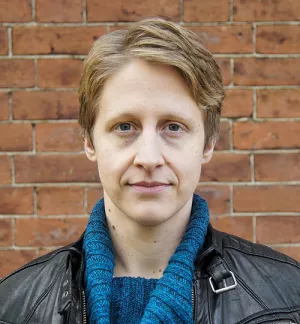This is a personal reflection essay. If you’re interested in more information about my actual TAPP Fellowship project - Sexual Censorship on Social Media - check out my blog or instagram.
“Can I defer until next year?” I asked, when the first email came through saying the inaugural year of the TAPP fellowship might be full remote.
I’ve made several big career decisions based primarily off the fact that I enjoy interacting with other people in person: I switched from engineering to product management, and later hauled myself across the country to take a government job that required you to be onsite.
I never would have applied for a fellowship program that was full remote. (I never would have applied for most fellowships tbh, but I liked how the TAPP program was advertising itself as action-oriented) Going back to Boston, where I’d spent my undergrad years, was an exciting prospect. I looked forward to the many coffee shop runs I would go on with my fellow Fellows: I saw us laughing as we crossed campus, remarking in bewilderment about how young the students looked, bemoaning the inevitable expansion of our browser tab count as we stood in line at Flour. (Arguably the best of the Cambridge café scene, though I admit Tatte has also gained a place in my heart)
So I wasn’t exactly thrilled at the sudden prospect of doing it all alone in front of my camera.
This was back before I’d ever heard the phrase “partial re-opening” or seen a stacked graphic of conditional phases, back when we were in the first few months of isolation and I was still burning through my first case of emergency pasta.
I’d just moved from a tiny one-bedroom city apartment to a large semi-suburban house, which gave me room to spread out and a yard for private outdoor time. I’d made the offer on this house in December, right before any of this started, and I had planned to entertain constantly, never letting it be empty for too long. Now the echoes of my lonely footsteps reverberated through the cavernous space as I paced the 100-year-old wooden floors - not that anyone else was around to hear them squeak.
I had been planning to spruce it up, throw a bunch of parties, then rent it out to some friends while I moved to Cambridge for the 9 months of my Harvard adventure. A part of me still yearned for that dream, so I asked if I could do it next year instead.
The TAPP staff replied to my email and said ‘maybe? We have no idea what the fuck’s going to happen’ followed by the shruggie and the crazy-eyes emoji. (I’m paraphrasing for effect, but that was the general sense)
I was gainfully employed and didn’t need to rush a decision, so as the COVID case count grew I figured I’d wait and see, but plan to defer and try again next year.
The following weekend I logged in to my first remote pandemic conference, a virtual “women of sex tech” event. It was full of inspiring presenters talking about their work trying to make a better sexual future for us all.
There were many excellent speakers - sex toy pioneers, sex worker advocates, medical experts, lawyers - but there was a common thread in everyone’s experience: how shitty of a job the internet moderators were doing with sexual content.
Disproportionately removing content by people of color, shutting down accounts of sexual educators, blatantly discriminating against legal sex workers, or allowing continued harassment by abusers - just some of the many ways social media is letting us down. The conference itself had to scramble last minute to find a new video platform after YouTube’s automated moderation system took down their channel the day before the conference. YouTube later restored the account, but it was too late for the event.
This was the very topic I had proposed in my fellowship application, and it had become even more relevant in the pandemic. Communication over digital platforms, already such a huge component of the way we interact with each other, was now the only method of safe interpersonal communication. When sexual content is routinely banned on these platforms - whether or not it’s actually against their guidelines - what do we lose?
I left the conference (and by that I mean I exited the Zoom window and remained in the same butt imprint on my couch that I had been inhabiting for hours) with a troubled conscience.
Now was the time to do this project. The problem wouldn’t be gone in a year, but in this moment, with so much of our human interaction channeled through social media and video calls, it was going to have more effect than ever. Just when in-person hookups became a massive COVID risk, Zoom was announcing the use of machine learning to detect and shut down nudity and sexual activity so you couldn’t even count on having a video sex date.
So I changed my mind.
I stayed in my big empty house and tele-conferenced into the Fellowship, brewing my own coffee and getting books shipped to my doorstep. It wasn’t what I pictured but, no matter what, I was going to be spending the pandemic alone in front of a computer. I might as well go ahead and work on something that calls to me, something coming to a head with the pandemic and talk of Section 230 reform, something that I wasn’t likely to get a paid chance to work on otherwise.
It hasn’t been easy, but it was definitely the right choice.
Bayley , Clare. ““Full Remote” .” February 26, 2021


